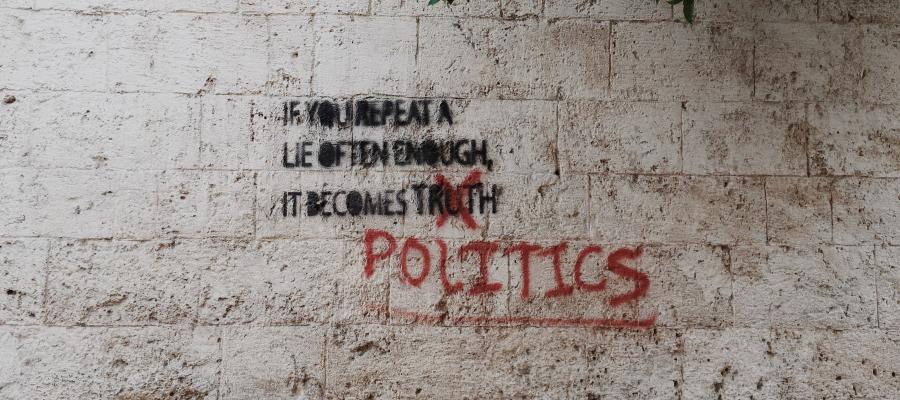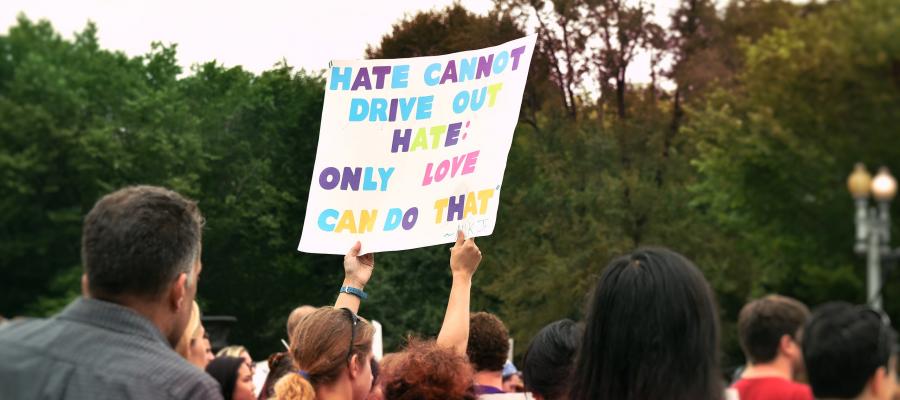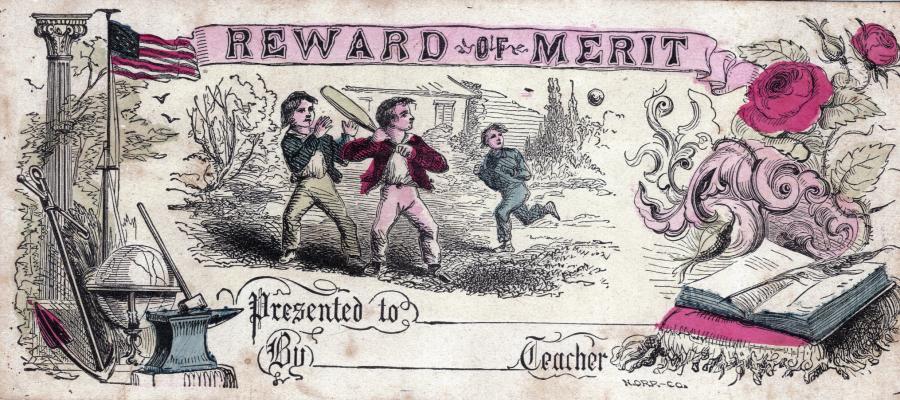When Do False Beliefs Exculpate? (Pt. II)
08
Jan 2021
In my last pandemic puzzle, I posed the question: When do false beliefs exculpate? I floated a principle—the false belief criterion of exculpation—that tried to explain when false beliefs make someone not guilty of a moral offense, but it didn't work in every case. So how do we solve this puzzle?
Read moreGaining Knowledge without Learning
01
Jan 2021
You can come to know something by observation, by testimony, or by working it out in your head. But there’s another way of knowing something that doesn’t involve learning because it doesn’t involve coming to know a pre-existing fact. This way of knowing arises when you do something intentionally.
Read more2020: The Year in Poetry
25
Dec 2020
As 2020 draws to a close, we take a look back at the year that has been. One good thing happened this year: the Nobel Prize in Literature was awarded to Louise Glück. Tune into this week's show, "The Examined Year: 2020" to hear some of her poems, including my all-time favorite, “Ithaca.”
Read moreAre “Human” Embryos Human?
17
Dec 2020
Opponents of abortion argue that because embryos belong to our species, they are human embryos, and are therefore human beings. And as killing innocent human beings is wrong, abortion is wrong. But is it correct to say that human embryos are human beings?
Read moreFinding Minds in a Material World
11
Dec 2020
How did minds first evolve out of matter? Could consciousness have evolved more than once? How do we tell which living things have minds? Is there something it’s like to be a crab and live a crab's life? This week we’re thinking about “Minds and Matter.”
Read moreWhen Do False Beliefs Exculpate? (Pt. I)
03
Dec 2020
Another month of pandemic... and another philosophical puzzle from me to distract you from it. This time, the puzzle concerns beliefs and specifically whether acting under the guidance of false beliefs can exculpate someone of a moral wrongdoing.
Read moreShould the Arts Be for All?
27
Nov 2020
Should artists make artworks that are easy to understand? Or should there be challenging artworks out there, but free education to help us understand them? What, if anything, is the value of difficult paintings, poems, and novels? This week we’re thinking about “The Arts for All.”
Read moreSay it Enough, They’ll Believe It
20
Nov 2020
If you repeat something often enough, people are more likely to believe it. That's a phenomenon called the illusory truth effect. It can happen with smart people, and even when the statement is already known to be false. So why does repeating something make people more likely to believe it?
Read moreWhose Fault Is It Anyway?
14
Nov 2020
Who’s to blame for big problems like racism, factory farming, or climate change? Isn’t it time we held governments and corporations accountable? Or would that just let individuals off the hook? This week we’re talking about collective responsibility.
Read moreWhy We Argue About Fiction
02
Nov 2020
From an evolutionary standpoint, it’s puzzling that humans consume fiction. Why waste valuable cognitive resources on information we know is unreal? But it is even more puzzling that we argue about such fictions! I explore some reasons why we do this.
Read moreWhat Would We Lose If We Had No Art?
27
Oct 2020
Think about the art you’ve enjoyed in your life: the novels, the television, the music, the poetry, the sculpture, the paintings—the list goes on. Now try to imagine a scenario in which none of this art had ever been made. What would we lose in a world like this?
Read moreWhy Games Matter
23
Oct 2020
Do games help us form social bonds and build important life skills, or are they just a pleasant way to escape the daily grind? Worse yet, could playing games make us lazy and antisocial? These are some of the questions we’re asking in this week’s show, What’s in a Game?
Read moreReasons to Hate
18
Oct 2020
Why is there so much hate in the world? Is hatred ever morally justified? Or does hate just breed more hate? What exactly is hatred anyway? These are some of the big questions we’re tackling on this week’s show, Why We Hate.
Read moreAbortion and Humanity
12
Oct 2020
In my last blog I explained how some opponents of abortion misappropriate my work on dehumanization, and why their argument doesn’t work. But if we understand dehumanization as the denial that some human beings are really human, this conception seems to serve the anti-abortion cause much better.
Read moreSkepticism and Trust in Science
06
Oct 2020
Why do so many people believe in conspiracy theories? Do we need to evaluate the evidence for ourselves, or should we just trust the experts? This week on Philosophy Talk, we’re discussing science and skepticism, and the role that trust plays in deciding what's true.
Read morePhilosophy for the Apocalypse
30
Sep 2020
Several philosophers have recently remarked that it’s hard to do philosophy in the face of the apocalypse. Philosophy is sometimes seen as a special treat for the fattest of times, and an utterly impractical hobby in the leanest. Not only is this idea false, it’s also self-defeating.
Read moreWho Gets to be a Citizen?
15
Sep 2020
How should we decide who gets to be a citizen? Should your political rights really depend on where you were born? Would it be better to live in a world without borders? This week, we’re talking about citizenship, political rights, and justice.
Read moreWhy Do People Argue about Fiction?
09
Sep 2020
For this month's puzzle, I'm focusing on the human ability to produce and consume fiction. Why do creatures evolved to survive in a harsh reality spend so much time, energy, and effort doing this? And why do we argue with one another about what “really” happened in these various fictional worlds?
Read moreDoes Meritocracy Have Merit?
28
Aug 2020
Should people be rewarded for their talent and effort? Or should society treat us all the same? Is meritocracy just a smokescreen for a system that’s rigged? These are some of the questions we're asking on this week's show on "The Merits of Meritocracy."
Read moreAnother Reason Zoom Is So Draining
18
Aug 2020
There is a particular dead-eyed, mind-numbing exhaustion I feel at the end of every video meeting I’ve ever attended. Zoom is exhausting for many reasons, but the most important one is that it is missing a fundamental piece of social interaction—joint attention.
Read moreKant on Lying to Robots, Part II
10
Aug 2020
I recently posed a puzzle about Kant's moral philosophy. The puzzle was this: if lying is always wrong, would it be wrong (according to Kant’s theory) to lie to a robot with speech technology who came to your door trying to locate innocent people who were hiding from a tyrannical government?
Read moreDiscriminating Streets
07
Aug 2020
Why is there so much bad urban design? How can we make our streets more welcoming to everyone? Is the perfect city merely a mirage? This week on the show we’re asking whether streets can discriminate, and how we can design our cities so they are more just.
Read moreAbortion and Dehumanization
04
Aug 2020
From time to time, pro-life advocates appropriate my work on dehumanization to argue that those who take a pro-choice position routinely dehumanize the unborn, paving the way for murder-by-abortion. I want to show why these arguments don’t hold any water.
Read moreOn Ethicists and Jerks
27
Jul 2020
Can studying moral philosophy make you more moral? Could it make you less moral? How do we become more virtuous? Or should we all just settle for moral mediocrity? These are some of the questions we’re thinking about on this week’s show, “The Ethical Jerk.”
Read moreA Cat's Life
24
Jul 2020
Listener Jacob B. in the UK got in touch with a question on our recent "Pet Ethics" show. He wanted to know if preventing his cat from staying out at night to make sure she is not killed by a fox means he is depriving her of an essential part of a cat's life experience. Ray responds.
Read more- ‹ Previous
- 4 of 39
- Next ›






















